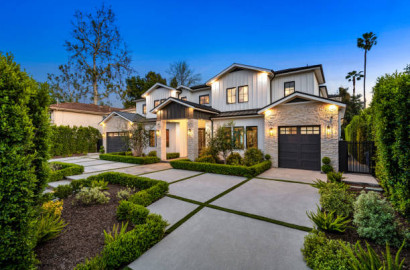Finding a place to live can be a daunting task, especially when weighing various living arrangements. One option that often comes up is living in the same building as your landlord. This arrangement has both advantages and disadvantages, which can significantly impact your rental experience. In this blog post, we’ll explore the implications of living with your landlord, helping you make an informed decision about whether this setup is right for you.
The rental market can be competitive, and the prospect of sharing a living space with your landlord might seem appealing at first glance. It may offer benefits like lower rent, flexible lease terms, and a more personal relationship with your landlord. However, this arrangement can also lead to potential challenges, including privacy concerns and blurred boundaries. Understanding both sides of the equation is crucial before making your decision.
The Pros of Living with Your Landlord
1. Cost-Effective Living
One of the most significant advantages of living in the same building as your landlord is the potential for reduced rental costs. Many landlords might offer lower rent to attract tenants who are willing to share their space or live in closer proximity. This can be particularly appealing for those on a tight budget.
2. Direct Communication
Living nearby means you can communicate directly with your landlord, making it easier to address any maintenance issues or concerns. This proximity can lead to quicker responses to repairs and a more personal relationship, which can foster a sense of trust.
3. Flexible Lease Terms
Landlords may offer more flexible lease arrangements when they live nearby. This can include shorter lease terms, the potential for month-to-month arrangements, or the ability to negotiate terms that suit both parties.
4. Community Feel
Sharing a building with your landlord can create a sense of community. You may feel more connected to your living environment and have a better understanding of the dynamics in the building. This can be especially beneficial in smaller properties.
The Cons of Living with Your Landlord
1. Privacy Concerns
One of the most significant drawbacks of living with your landlord is the potential for privacy issues. Having your landlord living nearby can lead to feelings of being watched or scrutinized, which can be uncomfortable for some tenants. You may feel less free to live your life as you would in a more private setting.
2. Blurring of Boundaries
The relationship between landlord and tenant can become complicated when both parties live in close proximity. It may be challenging to establish clear boundaries, leading to misunderstandings or discomfort regarding personal space and responsibilities.
3. Possible Tension
If conflicts arise—whether due to noise, maintenance issues, or disagreements about rent—living in close quarters can exacerbate those tensions. Disputes might feel more personal and difficult to navigate when you see your landlord regularly.
4. Limited Options for Moving Out
If the living situation becomes uncomfortable, moving out can be complicated. You may find it harder to search for a new place while still living in the same building, particularly if you have a cordial relationship with your landlord that you don’t want to disrupt.
Things to Consider Before Deciding
1. Assess Your Comfort Level
Consider how comfortable you are with the idea of living in close proximity to your landlord. Do you value your privacy, or are you open to a more communal living situation?
2. Evaluate the Relationship
If you already know your landlord, assess your relationship. Do you communicate well? Are they respectful of your space? A strong, respectful relationship can make living together more pleasant.
3. Discuss Expectations
Before committing, have an open conversation with your landlord about expectations. Discuss maintenance responsibilities, noise levels, and any other concerns you might have to ensure clarity and mutual understanding.
4. Explore Alternatives
If you’re unsure about living with your landlord, consider other options. Look for rentals that offer privacy and independence while still being cost-effective.
Conclusion
Deciding whether to live with your landlord in the same building is a personal choice that depends on various factors, including your lifestyle, budget, and comfort level. While there are potential benefits, such as cost savings and direct communication, there are also significant drawbacks, including privacy concerns and the possibility of blurred boundaries.
Before making your decision, carefully weigh these pros and cons, consider your unique circumstances, and communicate openly with your landlord. Ultimately, the right choice will lead to a more enjoyable and harmonious living situation that meets your needs.
Related posts:
It usually starts as a simple question, the kind people ask casually but think about deeply. Do you buy a car to make life easier now, or land to secure something bigger for the future? Both feel important. Both cost...
At some point in the home-buying journey, almost everyone faces the same quiet dilemma. Do you choose the order and structure of an estate, or the freedom and independence of a standalone house On the surface, the decision looks simple....


 Land or Car: Which One Should You Buy First?
Land or Car: Which One Should You Buy First?
 Living In An Estate vs Standalone Houses: Which One Is Actually Better?
Living In An Estate vs Standalone Houses: Which One Is Actually Better?
 Why Many People Start Building and Never Finish
Why Many People Start Building and Never Finish
 Should You Buy a Home or Build One? A Complete Guide to Making the Right Decision
Should You Buy a Home or Build One? A Complete Guide to Making the Right Decision
 The Best Places to Live in Lagos
The Best Places to Live in Lagos